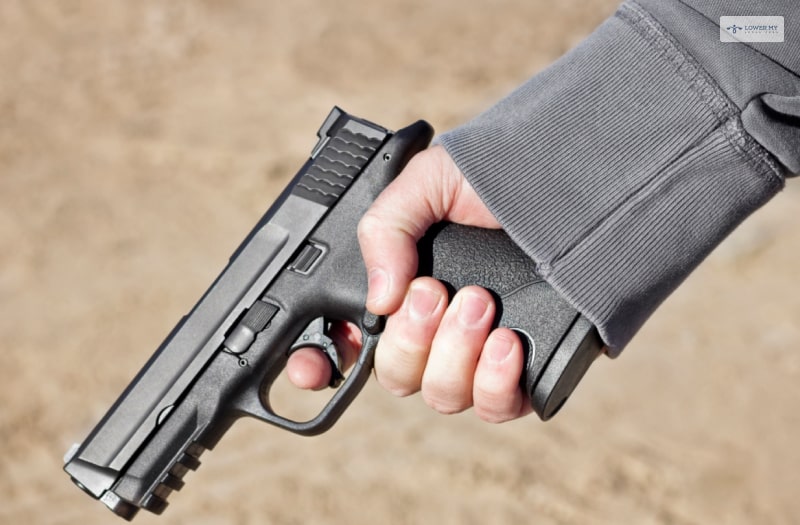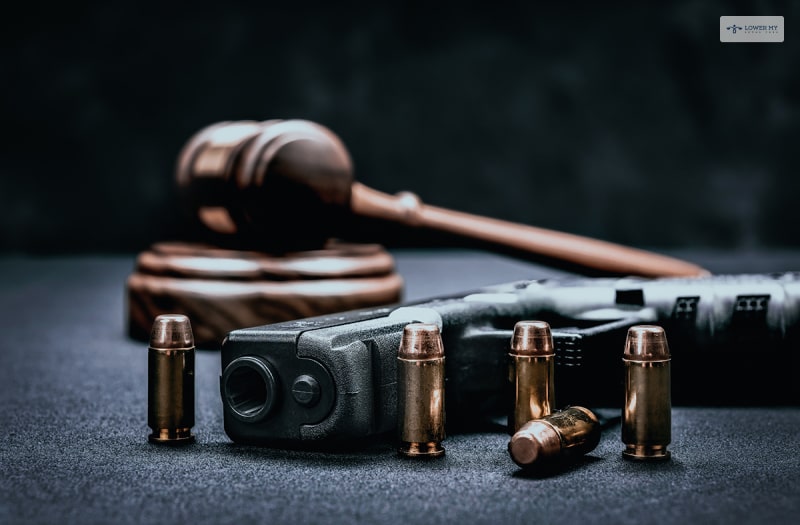Gun laws throughout the country vary depending on the state and federal laws governing them. The relevant laws lay down limitations on the purchase and distribution of firearms throughout the country.
Some individuals may be prohibited from owning and carrying firearms if they have been convicted felons. People struggling with substance abuse have also been restricted from carrying arms. Before starting with the article, find out more about the gun laws in Maryland.
What Are The State Gun Laws In Ohio?

The State Constitution of Ohio duly addresses gun laws. Section 4 of Article 1 of the Constitution states that any law-abiding statesman man may have the right to bear arms for the purpose of self-defense and safety.
However, no citizen has the right to keep and maintain an army during times of peace.
The state constitution also makes it clear that although there is to exist a strong military facility, civilians and their rights will always come first.
Who Can Carry Firearms In Ohio?

Ohio’s newly passed gun law states that a person who is 21 years or older can carry a firearm and even carry a concealed weapon in the state. The law now allows all citizens, who are legally sane, to carry a concealed weapon if they deem fit, for the purpose of self-defense.
The law has attracted much controversy as it allows any person to carry a gun. No permits for a firearm or even a background check are necessary.
What Are The Requirements And Restrictions For Carrying A Long Gun?
What disqualifies you from owning a gun in Ohio?
There are some existing regulations on in order to purchase a long gun, a person has to be 18 years of age.
Hand Gun Regulations

One has to be at least 21 years of age to be able to carry a handgun in the state of Ohio. Once one attains the required age they can either acquire a handgun by purchasing one from a private source or through an individual authorized by the Federal Firearm License.
The drawback of federal law happens to be that there are no specific regulations governing the purchasing age for munitions and other firearms-related accessories.
Concealed Weapons
In the year 2004, Ohio became the forty-fifth state to legalize the carrying of concealed weapons with a statute being passed to that effect.
Laws in Ohio state that a person can carry a concealed handgun if they can fulfill the following conditions. They are:
- The person should be 21 years of age.
- They should have gotten a license to carry concealed weapons.
- In order to get a license, the person should apply for one, and get 8 hours of training from a certified instructor.
- The person should also qualify to possess a sound mind and body.
- They should have an acceptable record containing no criminal charges.
- There are certain residency requirements that one is also meant to meet. From the year 2015, non-residents of Ohio also can apply for a license to carry concealed weapons.
What disqualifies you from owning a gun in Ohio?
The concealed weapons permit from the state of Iowa does have some limitations.
A person can ban the carrying of guns on their private property. They can do so by posting a sign or a declaration to that effect.
Despite the sign, if anyone tries to enter the premises of the property while carrying a gun, the owner might call the police and charge the person with trespassing.
Who Might Not Recieve An Ammunition License?

Any citizen or non-resident who has been convicted of drug-related crimes is not allowed to own a gun in the state of Ohio. A person who has been charged and convicted of a misdemeanor, felony, or other violent tendencies, shall not be allowed to carry concealed weapons.
No-carry zones are usually so for both concealed and open-carry weapons.
What Are No-Carry Zones?

The law lays down provisions for the establishment of no-carry zones. When one is present or entering such zones, they are required to enter without concealed weapons.
There are some limitations that organizations must follow. Any employer cannot ask an employee not to carry a gun if the employee leaves their gun in their parked vehicle in a parking lot. Such provisions also allow one to keep their guns inside their vehicles in the parking lot, in case they have entered a school zone.
Agreements Of Reciprocity

The Ohio state legislation permits reciprocal gun laws to be followed in coordination with other states. If any other state decides that it will follow certain laws that allow residents of other states to carry guns in Ohio, other states also allow for Ohio residents to carry guns in their states.
This is a reciprocal agreement that Ohio follows in collaboration with twenty-two other states of the country. There are other states that do not share this reciprocal arrangement with Ohio.
For instance, the state of Iowa recognizes the gun laws of Ohio, but Ohio does not in turn allow Iowa residents to carry guns in their state.
What Disqualifies You From Owning A Gun In Ohio?

The State and Federal laws applicable in Ohio state that one is not eligible to own a gun if the following conditions are not met.
- If they have not attained a majority.
- If they do not have a gun carrying permit, concealed or open carrying.
- If they have criminal, felon, or other violent convictions on their record.
- If they are not of sound mind.
- If they have been convicted of drug-related charges earlier.
- If they hve3 been accused of gun-related crimes, the illegal dealings of arms and ammunition in the black market.
- If they are held ineligible by the background check conducted by the National Criminal System for this purpose.
What Are Ohio Gun Laws On Open Carry?

What disqualifies you from owning a gun in Ohio?
The Gun Laws of Ohio hold a pretty traditional view on open carrying. As long as the person possessing the weapon has the legal license to do so, they can go about their day’s business without worry.
The new laws passed by the state also state that a person carrying a gun, whether open or concealed, does not need to technically come clean to law enforcement and let them know of the weapon if there is any sort of interaction.
However, if a law-enforcing official asks them a direct question, they should answer honestly.
And It Is A Wrap!
More and more republican states are options for the right to carry weapons.
However, with gun violence o the rise, and more schools facing shootings on premises with each passing year, the government should seriously take into consideration if stricter gun laws and requirements should be considered in order to allow the purchase of weapons.
Do let us know if you found the article informative!
Leave your doubts and questions in the comments below!
Read Also:






